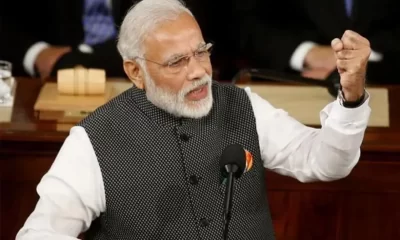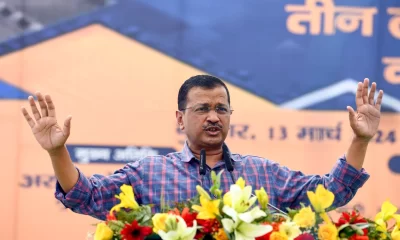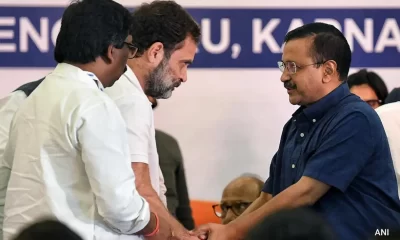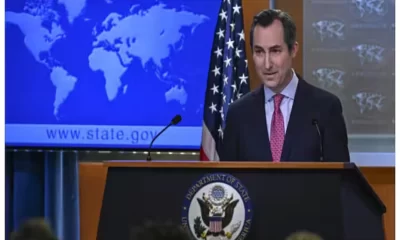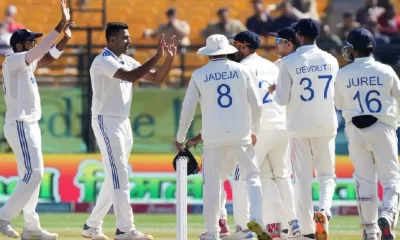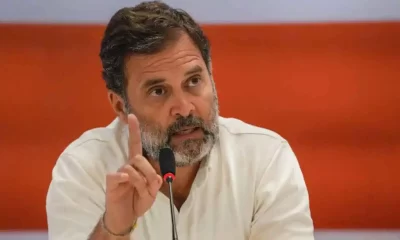Latest business news
Amazon pitch AI, machine learning in India’s retail sector push

[vc_row][vc_column][vc_column_text]Amazon also uses AI or ML for forecasting demand, stocking adequate inventory, fraud detection and product search ranking etc.
The online retail giant, seeking a rapid pace of expansion in India and with investment over Rs 13,800 crore, it is now eyeing for a major chunk of retail sector in the country using machine learning (ML) and artificial intelligence (AI).
The concept of AI and ML have become more widespread than ever before and are often used interchangeably. Artificial Intelligence is the broader concept of machines being able to carry out tasks in a way that we would consider “smart”, while Machine Learning is a current application of AI based around the idea that we should really just be able to give machines access to data and let them learn for themselves. Apparently, Amazon was among the first users of customer data collection and analysis for improving services and personalising the shopping experience.
Rajeev Rastogi, head of Artificial Learning, Amazon India said that both transformative technologies are being used in several ways to improve customer experience. For instance, he said, apart from guiding sellers on categorization, Amazon also tracks products that have high sales during festivities or holidays, and based on such factors, it suggests the best products and deals that can woo customers.
Amazon also uses AI or ML for forecasting demand, stocking adequate inventory, fraud detection and product search ranking etc. The Seattle-headquartered company soon plans to launch event-based deals in India. These deals will specifically be offered on occasions such as Rakshabandhan or Diwali.
Rastogi predicted that AI will be heavily leveraged during this Diwali festival season as well and the technology will be used to improve the customer’s address as India poses a unique challenge of inadequate or not well-informed delivery addresses which leads to failed deliveries.
The company also uses ML to provide customer product recommendations, special deals and better shopping experience based on their historical browsing trends and buying behavior.
“Advertising is another area where we use ML. It helps in showing relevant advertisements and promotions to users based on search queries,” said Rastogi. Amazon India, which started operations four years ago, has grown 124% every year, and in the second quarter of 2017, it logged 88% year-on-year growth.
Amazon India also launched its new business-to-business (B2B) retail service called Amazon Business to reach a higher base of small and medium enterprises (SMEs). This move is seen as Amazon’s new revenue streams amid a fierce battle for market share with Flipkart.[/vc_column_text][/vc_column][/vc_row]
Latest business news
Google restores delisted Indian apps after government intervention
Google on Saturday restored all Indian apps it had removed.

Google has started to restore all the delisted Indian mobile apps on Play Store agian, which they had removed due to a disagreement over service fees. After a discussion between company representatives and IT Minister Ashwini Vaishnaw, the decision was made, according to sources.
The step was taken in response to Vaishnaw’s strong statement in which he said that it is not allowed for apps to be removed from the Google Play Store. The minister had said, India is very clear, our policy is very clear…our startups will get the protection that they need.
Vaishnaw continued saying that he has already given Google a call. They will be speaking with the app developers who were delisted this week. This is not acceptable. The minister said this kind of delisting cannot be permitted.
Ten Indian companies’ apps were banned by Google on Friday, causing outrage in one of its fastest-growing markets. With 94% of phones running on its Android platform, Google holds a large portion of the Indian market. Popular names like Naukri and Bharatmatrimony were on the list.
The main point of contention is Google’s in-app purchase fees, which range from 11% to 26%. Indian startups have long opposed the US tech giant’s actions, believing them to be unfair.
The founder of Bharat Matrimony, Christian Matrimony, Muslim Matrimony, and Jodii, Matrimony.com, expressed shock at the matchmaking apps’ removal from the Google Play Store.
Shaadi. Com CEO Anupam Mittal described it as a dark day for India’s internet, highlighting the possible broad effects on matchmaking services. He also called Google an evil.
While, Kuku FM Co-founder Vinod Kumar Meena in a statement had said that Google was behaving like a monopoly.
Meanwhile, Google temporarily withdrew the famous Indian payments app Paytm from the Play Store in 2020, claiming a few policy infractions. Due to this decision, the founder of the company as well as the larger startup community came together to build their own app stores and file lawsuits against Google.
Latest business news
Anant Ambani says he is 100% lucky to get Radhika Merchant in his life
Anant Ambani said he was grateful to get Radhika as his life partner. He said he is 100% lucky to get Radhika Merchant in his life. He said every day he is falling more and more in love with her. He added although he had known Radhika for the last 7 years, it felt he had met her only yesterday. He thanked Radhika for everything.

Anant Ambani and Radhika Merchant’s grand three-day wedding celebrations began with a glamorous cocktail night on Friday in Jamnagar. During the celebrations, Anant Ambani also gave a speech wherein he thanked his late grandfather Dhirubhai Ambani and grandmother Kokilaben Ambani for inspiring him. Anant Ambani said he was grateful to get Radhika as his life partner. He said he is 100% lucky to get Radhika Merchant in his life. He said every day he is falling more and more in love with her.
He expressed his gratitude to his mother for pulling together the lavish three-day wedding celebrations in Jamnagar. Anant thanked his mother for all she had done. He said all the arrangements had been done by his mother and nobody else. He added his mother had gone all out and she had worked 18-19 hours a day and he was extremely grateful to her.
He also thanked all the guests who were present there at the pre-wedding celebrations. He said everyone had made it to Jamnagar to make him and Radhika feel special. He said both of them were honored and humbled to have all of them present there. Anant said he was sorry if they had caused an inconvenience to anyone. He asked for forgiveness. He hoped everyone is going to enjoy the coming three days. He also thanked his mother, father, sister, brother, his sister-law and his brother in-law for making this event memorable.
Anant said everyone has been sleeping for less than 3 hours a day for the last 2-3 months and he was very happy to share this joy with everyone. The youngest Ambani talked about his personal struggles and how his parents had always supported him. He further added his life had not been entirely a bed of roses. He said he had also experienced the pain of thorns. He said he had faced many health crises.
Latest business news
Facebook chief Mark Zuckerberg shares pictures from 2nd day of Anant Ambani and Radhika Merchant pre-wedding celebrations
Zuckerberg shared pictures from the 2nd day of Anant Ambani and Radhika Merchant’s pre-wedding celebrations. In the photograph Mark Zuckerberg can be seen along with his wife Priscilla Chan. The couple is exuding happiness as they prepare for the event. He captioned the picture it is getting wild out here.
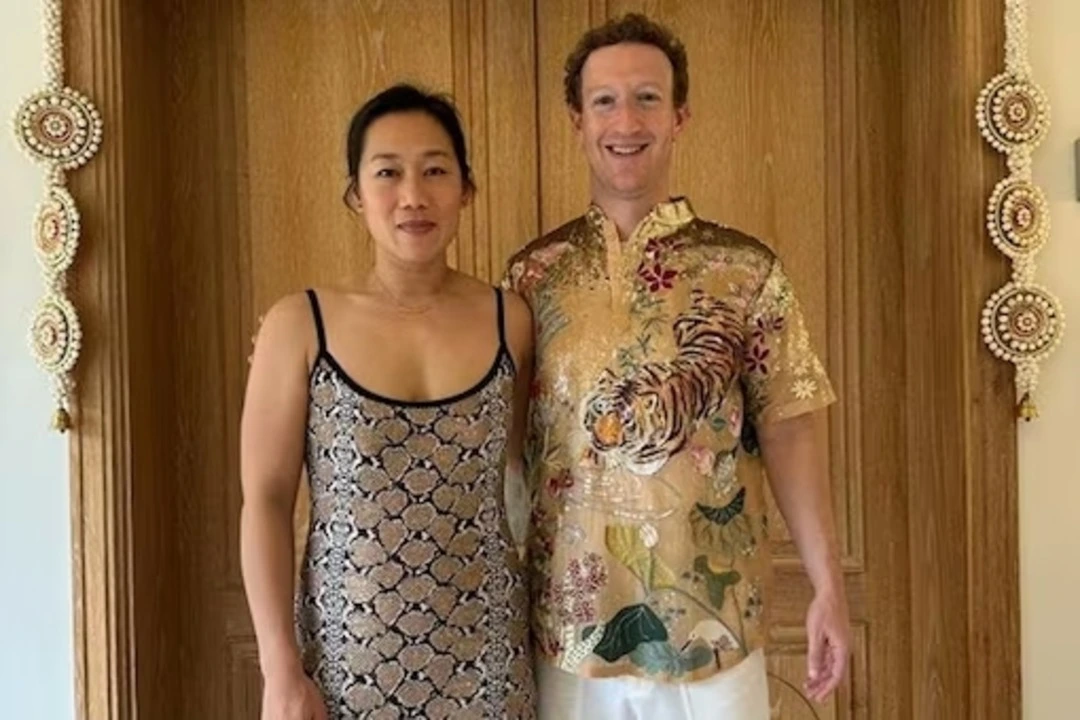
Facebook boss Mark Zuckerberg and wife Priscilla Chan joined the star- studded pre-wedding celebrations of Anant Ambani and Radhika Merchant in Jamnagar on Friday. The event was attended by many prominent figures from different fields. Zuckerberg took to his Instagram handle congratulated the couple and said he loved Indian weddings.
Zuckerberg shared pictures from the 2nd day of Anant Ambani and Radhika Merchant’s pre-wedding celebrations. In the photograph Mark Zuckerberg can be seen along with his wife Priscilla Chan. The couple is exuding happiness as they prepare for the event. He captioned the picture it is getting wild out here.
The theme of the opening day of the pre-wedding celebrations was Evening in Everland as the guests wore cocktail attire. The first day of the grand celebrations elevated the expectations of the guests for the following days. The theme of the 2nd day of the pre-wedding bash is known as a Walk on the Wildside and the guests can be seen in Jungle Fever attire.
Zuckerberg has opted for an animal print shirt with white trousers, Chan is complementing his look in a strappy one piece in black and golden. The Jungle theme is aligned to Vantara, Reliance’s animal welfare initiative undertaken and launched by Anant Ambani a few days back.
International pop star Rihana electrified the pre wedding celebrations on Friday with an amazing performance, marking her debut appearance in India. The chart topping artist engaged the audience with performances of her iconic hits which included Pour it Up, Work and Diamonds.
Zuckerberg graced the opening day, wearing a black-on-black firefly blazer and shoes from Alexander McQueen while his wife Priscilla wore a black gown with gold flower details and other accessories such as dainty chain bracelet, gold necklace and stud earrings. Mark Zuckerberg and wife Priscilla Chan are one of the Power couples invited from the global business community for the festivities currently underway at Jamnagar.
-

 Entertainment24 hours ago
Entertainment24 hours agoMithun Chakraborty, Usha Uthup honoured with Padma Bhushan
-

 Entertainment22 hours ago
Entertainment22 hours agoFan jumps on stage and hugs Atif Aslam during concert, video goes viral
-
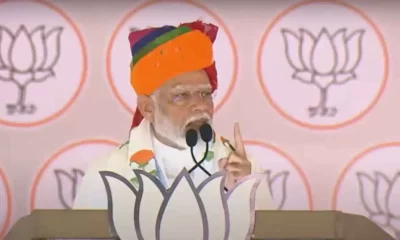
 2024 Lok Sabha Elections23 hours ago
2024 Lok Sabha Elections23 hours agoPrime Minister Narendra Modi says listening to Hanuman Chalisa under Congress rule is a crime
-

 Entertainment20 hours ago
Entertainment20 hours agoManisha Koirala reveals reason for rejecting Dil To Pagal Hai, says regrets that decision
-
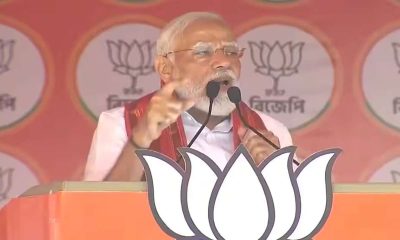
 2024 Lok Sabha Elections18 hours ago
2024 Lok Sabha Elections18 hours agoPM Modi says Congress leaders consider themselves above Lord Ram
-
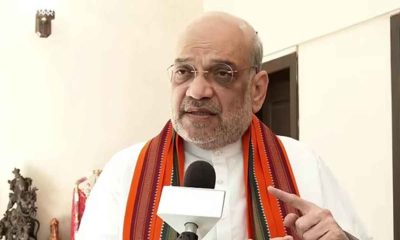
 2024 Lok Sabha Elections20 hours ago
2024 Lok Sabha Elections20 hours agoAmit Shah says neither Congress nor Trinamool chief Mamata Banerjee can interfere with CAA
-

 Trending19 hours ago
Trending19 hours agoDolly Chaiwala sips coffee atop Burj Khalifa, video goes viral
-

 Trending18 hours ago
Trending18 hours agoNexon owner replaces broken side mirror with a plastic mirror, social media users say epic moment

